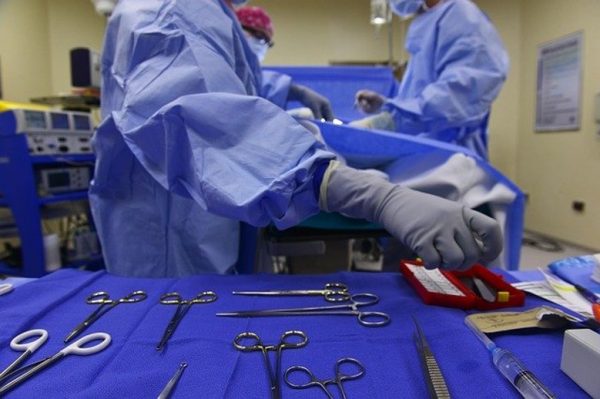
Tips to prepare for surgery
Surgery will be performed to make one feel better and take away the suffering.
Patients and families undergo lot of stress with fear of undergoing surgery.
Those imaginations and thoughts can have severe effect on patient health before surgery.
Whether it is minor or major surgery it is better to be prepared mentally and physically for the big day.
Here are some tips to get ready for the surgery (pre and post surgery)
- Address of the hospital: Have Hospital address, phone number with you. Generally hospital will notify you previous day about your appointment. If not, call the hospital number and confirm.
- Take out jewelry, wallet etc: Do not wear jewelry or carry valuables with you. During surgery you will be asked to remove jewelry that you are wearing.
- Perfumes, shower etc.: Do not wear any perfume on the day of surgery. Have a shower before going to hospital and be clean and neat. It is important to scrub down with antibacterial soap the night before surgery as well as the morning of surgery.
- Grocery shopping : Finish all your grocery shopping two days before your surgery. Stock up the cabinets, refrigerator, snack bar. Make sure you have sufficient healthy food for your recovery.
- Insurance: Call insurance and understand the copay and coverage. Don’t be surprised about the hospital bill after the surgery. If you or your spouse is working, understand how much insurance will be covered.
- Get to know the date of surgery: Be clear with date and time of your surgery. Mark the calendar and on the day of surgery be in the hospital on time. Being on time is essential because going through system, signing papers all these will take time.
- Know the name of surgeon: Ask your doctor or the referral doctor, who will perform surgery. If needed meet the surgeon. Most cases surgeon will be your specialist doctor. Meet your medical team if necessary. Talk to them and understand how and what procedure they do.
- Ask question: Understand the process and healing time. Sometimes hospitals will show you videos and provide your brochures that can help you understand the procedure – what to do and not to do before and after surgery.
- Wear lose cloth: Day of surgery and during recovery wear cotton, lose dress that is easy to remove.
- Take a friend or a family member: If you are alone take your friend with you or take a family member. You will need them on surgery day.
- Don’t eat or drink: Ask is it okay to eat or drink, Generally it is not preferred. Limit alcohol consumption and stop drinking alcohol at least a week before surgery.
- Stop smoking: Anyway, smoking is injurious to health. So stop smoking – this is your chance to make a life style change in the name of surgery.
- Anesthesia: Depending on the type of surgery you may be give local (for small part), regional (a larger area) or general anesthesia (whole body). Ask your anesthesiologist about your choices- inhaling or shot through vein or IV anesthesia can be given.
- Don’t fear of waking up in the middle of surgery: Talk to your anesthetist about your concern. Generally, this should not happen. But, asking question and showing concern is not a crime.
- Check your blood pressure: Check your BP and make sure it is normal. It is important to get BP under control before surgery.
- Talk to your doctor: Before surgery and after surgery talk to your doctor if you have any health issues, including heart or lung disease, diabetes, high blood pressure, dental work, arthritis, or drug allergies.
- X-mark and name band: To avoid any complications while preparing for surgery make sure you are marked on the correct side /place where surgery need to be carried out and also ask your family to recheck the name band. Nurses will ask questions too to confirm your identity.
- Pain and discomfort: After surgery you may feel pain, burning sensation or pressure and uncomfortable while moving. Muscles may be sore and so also your throat. If it is too much pain, explain your doctor.
- Keep yourself clean: Before and after surgery make sure that you are clean and don’t carry hospital infection. In case your nurse and doctor forget to clean their hands, gently remind them about it.
- Check medications: Ask about medications that are going to be prescribed. You don’t want any life threatening conditions to develop. For example, aspirin is a blood thinner and can cause problem.
- Bleeding or clotting: If you see any bleeding any part of your body inform your doctor. Similarly, people who smoke, old age, overweight, on certain medication or suffering from cancer etc. may develop clotting (Deep Vein Thrombosis) after surgery. Inform your doctor about this if you have concern and fear.
- Supplements: Many supplements can cause side effects. Stop supplements till you recover. Ginkgo biloba, ginseng, fish oil – all these can cause problem when mixed with other medicines.
- Second opinion : Get a second opinion about your surgery and recovery process.
- Diet: Talk to nutritionist and understand what should be your diet before releasing from hospital.
- After surgery: Take medicines as described, note down any changes or uneasiness. Understand your diet and eat healthy. This will help you to get back to your feet soon.
More importantly during and after surgery- be yourself, be your best. Surgery trauma is partly psychological and party physical. Reduce your anxiety before and after surgery. After your discharge you might need help. Call your family and friends and seek their support.
References:
- http://www.healthywomen.org
- https://www.memorialcare.org
- https://www.acog.org
- Image credit: Image by skeeze from Pixabay
Author: Sumana Rao | Posted on: July 13, 2017






















Write a comment